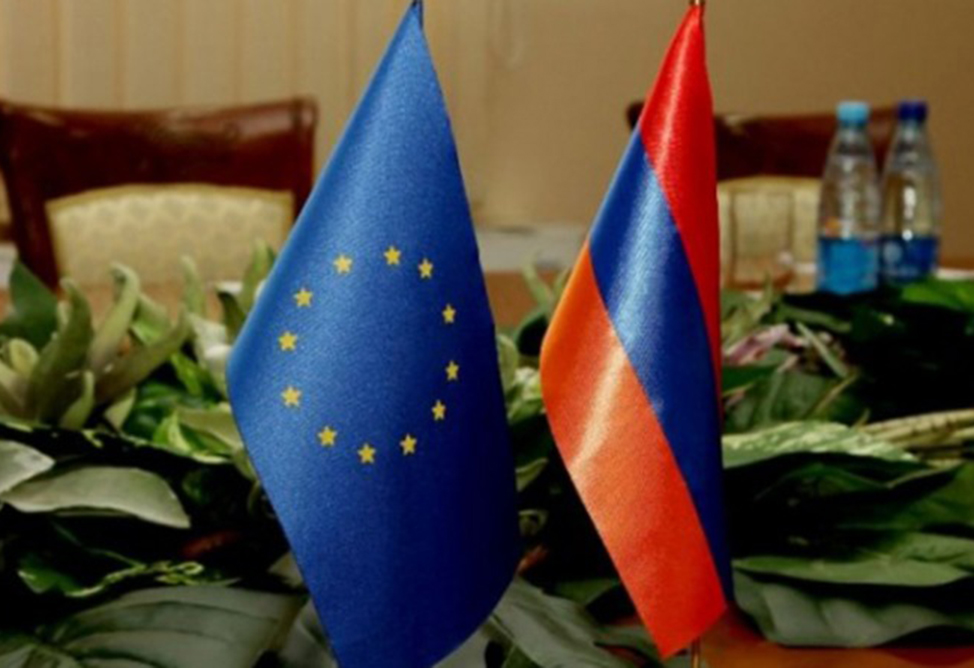Foreign ministers of Russia, Azerbaijan and Armenia discuss Nagorno-Karabakh in Moscow
08.11.2010,
17:39
The foreign ministers of Russia, Azerbaijan and Armenia discussed the Nagorno-Karabakh conflict settlement in Moscow on Saturday, Russian Foreign Ministry said in a statement.
YEREVAN, November 8, /ARKA/. The foreign ministers of Russia, Azerbaijan and Armenia discussed the Nagorno-Karabakh conflict settlement in Moscow on Saturday, Russian Foreign Ministry said in a statement.
It said Azerbaijan's Elmar Mammadyarov and Armenia's Foreign Minister Edward Nalbandian were on a visit to Moscow to hold talks with their Russian counterpart Sergey Lavrov.
"According to the reached agreements during the trilateral summit on October 27 in Astrakhan the issues over Nagorno-Karabakh settlement were on the agenda of the talks," the statement said.
The conflict in Nagorno-Karabakh broke out in 1988 after the predominantly Armenian-populated enclave declared about.
secession from Azerbaijan As Azerbaijan declared its independence from the Soviet Union and removed the powers held by the enclave's government, the Armenian majority voted in 1991, December 10, to secede from Azerbaijan and in the process proclaimed the enclave the Republic of Nagorno-Karabakh.
Full-scale fighting, initiated by Azerbaijan, erupted in the late winter of 1992. International mediation by several groups including Europe's OSCE’s failed to bring an end resolution that both sides could work with. In the spring of 1993, Armenian forces captured regions outside the enclave itself. By the end of the war in 1994, the Armenians were in full control of most of the enclave and also held and currently control seven regions beyond the administrative borders of Nagorno-Karabakh.
Almost 1 million people on both sides have been displaced as a result of the conflict. A Russian- -brokered ceasefire was signed in May 1994 and peace talks, mediated by the OSCE Minsk Group, have been held ever since by Armenia and Azerbaijan. -0-
It said Azerbaijan's Elmar Mammadyarov and Armenia's Foreign Minister Edward Nalbandian were on a visit to Moscow to hold talks with their Russian counterpart Sergey Lavrov.
"According to the reached agreements during the trilateral summit on October 27 in Astrakhan the issues over Nagorno-Karabakh settlement were on the agenda of the talks," the statement said.
The conflict in Nagorno-Karabakh broke out in 1988 after the predominantly Armenian-populated enclave declared about.
secession from Azerbaijan As Azerbaijan declared its independence from the Soviet Union and removed the powers held by the enclave's government, the Armenian majority voted in 1991, December 10, to secede from Azerbaijan and in the process proclaimed the enclave the Republic of Nagorno-Karabakh.
Full-scale fighting, initiated by Azerbaijan, erupted in the late winter of 1992. International mediation by several groups including Europe's OSCE’s failed to bring an end resolution that both sides could work with. In the spring of 1993, Armenian forces captured regions outside the enclave itself. By the end of the war in 1994, the Armenians were in full control of most of the enclave and also held and currently control seven regions beyond the administrative borders of Nagorno-Karabakh.
Almost 1 million people on both sides have been displaced as a result of the conflict. A Russian- -brokered ceasefire was signed in May 1994 and peace talks, mediated by the OSCE Minsk Group, have been held ever since by Armenia and Azerbaijan. -0-



